#Homosexuality in British cinema
Text
Victim 1961 dir. Basil Dearden
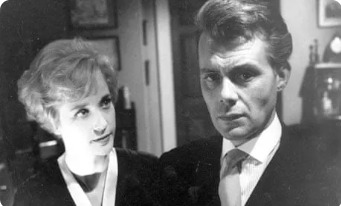
Currently available free to stream in the UK on ITVX.
Groundbreaking British film tackling the subject of the criminalisation of homosexuality and the 'Blackmailer's charter' it created. Still a powerful watch after more than sixty years.
Have you seen this film? Please reblog and share your thoughts!
5 notes
·
View notes
Text
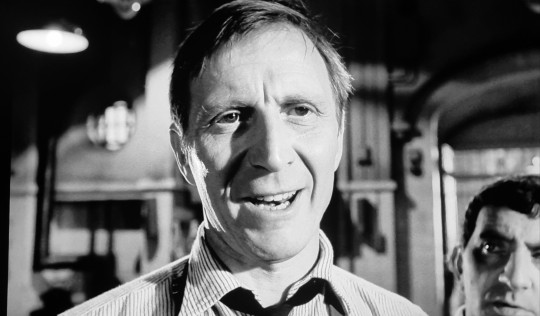

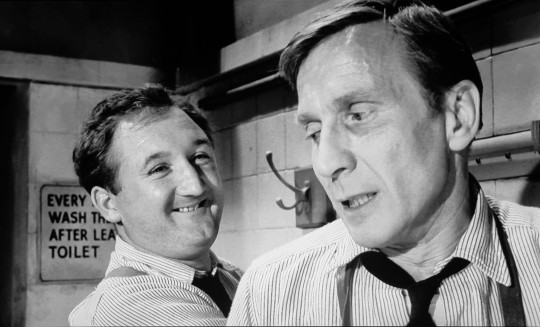
Alfred Burke as antagonistic convict (and self-styled tobacco 'baron') Lang in 1962's The Pot Carriers
#fave spotting#alfred burke#the pot carriers#public eye#frank marker#1962#british cinema#as is common with a lot of alf's pre public eye work‚ particularly in film‚ he plays a real heel here#he's probably the closest thing the film has to a villain (altho the real villain is arguably the prison system etc etc etc)#he makes some interesting choices in performance; Lang is not just a dangerous villain‚ he's an insidious one#in his first scene with Rainbow‚ the first time convict at the centre of the film‚ Lang tries to ingratiate himself with a loan of#cigarettes and a friendly manner; perhaps too friendly... there's just a frisson of camp to Alf's performance in his first scene (telling#Rainbow how he helps out those he likes and 'I like you...') which could be read as a problematic pairing of homosexuality with#corruption among a prison population. or maybe I'm reaching? who knows. but it is as always a joy to see Alf work#really relishing being a snake and going for the cockney menace. clearly he's having a whale of a time#i mean just look at that big grin in the 2nd picture....#this one turns up on tptv now and then i think and is well worth watching for brits with access
9 notes
·
View notes
Text
[“Watching erotic films—movies that are driven forward by sex scenes—is different from looking at single photos, pictorials, snippets, clips. The medium, the experience of going all the way through an eighty-minute feature, is an entirely different ride than a momentary glimpse, a fast-forward.
To prove it, I started throwing living room movie shows for my friends. I would give away my screener copies and show segments of my favorites. It was like I was offering free rocket tickets to the moon. My neighborhood audience was fascinated—and completely inexperienced. The living room got a little bigger—I created an educational show-and-tell clips lecture called “How to Read a Dirty Movie,” and another one called “All Girl Action: The History of Lesbian Erotic Cinema,” which I started premiering at independent theaters like the Castro and the Roxie. I hit the festival circuit all over the world, including a daring mission by the British Film Institute to get my movies in, despite ironclad UK customs rules against them.
One college-tour memory stands out. In rural Blacksburg, Virginia, a closeted gay student got ahold of student union funds for Friday Night Fun! at Virginia Tech to bring me out there for one of my clips shows. This is a school with a history of devotion to Southern white boys and military service. The students weren’t even allowed to watch R-rated films on campus. I didn’t find out this history until I was moments away from the podium. My young sponsor looked like he’d just detonated a bomb and his face was covered in sweat. “My Dirty Movie” clips show started, which happens to begin with excerpts of two young handsome army cadets making out on a firing range. I thought the roof was going to cave in. Blacksburg boys were running for the doors, making vomiting sounds, screaming. The students who stayed in their seats watched a full spectrum of sexual and human emotion, delivered by porn’s finest auteurs. They got more sex education in one hundred minutes than they’d had in their entire lives.
The stunned president of the Young Republicans, a co-sponsor of Friday Night Fun!, took me out to a fast food dinner afterward. He told me that he found it curious that the scenes of lesbians making love had pleased him, while the scenes of gay men had given him a stomachache. I was impressed that he was calm enough to observe his own reactions.
“I don’t disagree with all of what you do,” he said, “but I think it’s entirely unjust that you receive checks from the government for your homosexuality.”
I stared at him with my mouth full of fries. “Oh, it’s not that bad,” I said, “I only get half as much because I’m bisexual.”]
susie bright, from the birth of the blue movie critic, from the feminist porn book: the politics of producing pleasure, edited by tristan taormino, constance henley, and celine perreñas shimizu, 2013
3K notes
·
View notes
Text

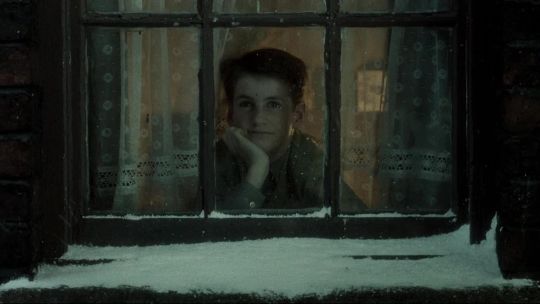

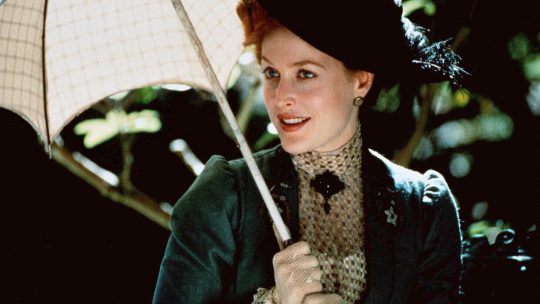

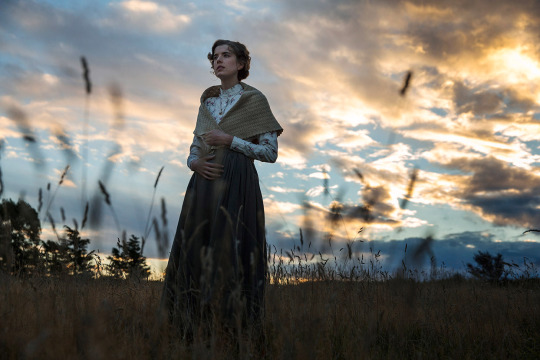


Terence Davies (1945-2023) era el más grande director británico vivo. No tuvo el éxito comercial de John Boorman o el reconocimiento en festivales de Ken Loach. Pero ningún otro director británico retrató mejor la cultura popular de la postguerra, la alegría de los momentos mundanos y la crueldad de las convencios sociales como Davies. Privilegió la mirada de los niños y las mujeres, pero también dio protagonismo a su ciudad natal, Liverpool. Davies dio voz a su homosexualidad al igual que a su fe religiosa. Prodigó finales felices y despiadados por igual. Escribió historias originales, con grandes tintes autobiográficos, pero también fue un eficaz adaptador de novelas; no en balde, hizo dos películas sobre eminentes poetas. Terence Davies amplió los horizontes del cine británico al tiempo que hizo películas personales y conmovedoras. QEPD.
Terence Davies (1945-2023) was the greatest living British director. He didn't have the commercial success of John Boorman or the festival recognition of Ken Loach. But no other British director portrayed post-war popular culture, the joy of mundane moments and the cruelty of social conventions better than Davies. He privileged the gaze of children and women, but also gave prominence to his hometown, Liverpool. Davies gave voice to his homosexuality as well as his religious faith. He lavished happy and merciless endings alike. He wrote original stories, with great autobiographical overtones, but he was also an effective adapter of novels; not in vain, he filmed two biopics about eminent poets. Terence Davies expanded the horizons of British cinema while making personal and moving films. RIP.
#Terence Davies#The Long Day Closes#The House of Mirth#The Deep Blue Sea#Sunset Song#Benediction#A Quiet Passion#Death and Transfiguration#Children#Liverpool#Madonna and Child#emily dickinson#Wilfred Owen#movies#Distant Voices Still Lives
53 notes
·
View notes
Text
I keep seeing commentary about Henry ranting about Lord Byron and recommending The Picture of Dorian Gray but y'all. While Henry the Repressed British Homosexual is recommending queer British literary classics written by people during centuries of repression, Alex is watching Some Like it Hot. He's also watching Some Like it Hot right at the beginning of the movie, right before they get into trouble and start the queer plot. And the exact shot is when Jerry is speaking.
This is an INCREDIBLE choice of film for him to be watching. Alex is, at this point in the story, in sort of denial that he's bi even though he has already had a couple of gay sexual experiences. While I've argued before and will argue till the cows come home that Jerry/Daphne's story in Some Like it Hot has always been a trans allegory, the less allegorical, more direct story is just that Jerry, who is full of hot air and bluster about flirting with girls but never manages to actually score like Joe does, realizes that he's bi, maybe even gay (it's not discussed directly being a film made in 1959 but boy it's about as clear as you could get without saying it directly). This is also widely considered the film that put the nail in the coffin of the Hayes Code, which is foundational American Cinema History and is a signpost of coming out of this era of heavy repression and into a (somewhat, idealistically) freer world.
I sure did not expect a two-second shot to have an incredible analysis of one of my favourite films in it (because I would bet money too that Jerry HAD fooled around with a guy before Osgood but kept it hush-hush) but, y'all, those microdetails. Incredible.
#I swear if you say some like it hot three times I appear behind you#some like it hot#red white and royal blue
45 notes
·
View notes
Text

Premiered at the Odeon Cinema in Leicester Square on August 31, 1961, 'Victim', is a British suspense film directed by Basil Dearden, with writers Janet Green and John McCormick, and starring Dirk Bogarde and Sylvia Syms.
Set against a background where homosexual acts between men were illegal in England and Wales until 1967 (under a law commonly known as the 'Blackmailer's Charter'), the movie was initially highly controversial; Jack Hawkins, James Mason and Stewart Granger, being amongst those who had already turned down the rôle before it was offered to Dirk Bogarde. Despite these initial difficulties, the film is now regarded as a British classic, credited for liberalizing attitudes towards homosexuality in Great Britain at a time when gay men had still needed to keep their identity secret.
In 1960, Dirk Bogarde, himself suspected to be homosexual (something he always denied), was 39 and considered pretty much the most popular actor in British films. Speaking in the 1980s about having played the rôle, he said, 'It was the wisest decision I ever made in my cinematic life. It is extraordinary, in this over-permissive age, to believe that this modest film could ever have been considered courageous, daring or dangerous to make. It was, in its time, all three'.
Among his many honours, Dirk Bogarde was created a Knight Bachelor in the United Kingdom in 1992, and awarded the Commandeur de l'Ordre des Arts et des Lettres by the French government in 1990.
He died in his London home on May 8, 1999. His ashes were scattered at his former estate in Grasse, southern France.
15 notes
·
View notes
Text
SPANKING ON TV #7
His Mother's Lover (2012) d. Nica Noelle
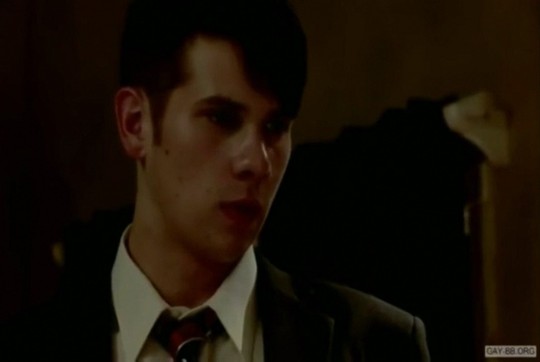
This film is set in the early 1930s and follows an American boy struggling with his homosexuality while attending boarding school in England. When Robert is caught in a passionate tryst with another lad, he’s beaten by the Headmaster with his own belt and given a four-week suspension. Back at home Robert meets his mother’s new fiancée, the older, nurturing Daniel. Feeling an instant, mutual attraction, the two look for ways to get closer, while dark family secrets begin to emerge.
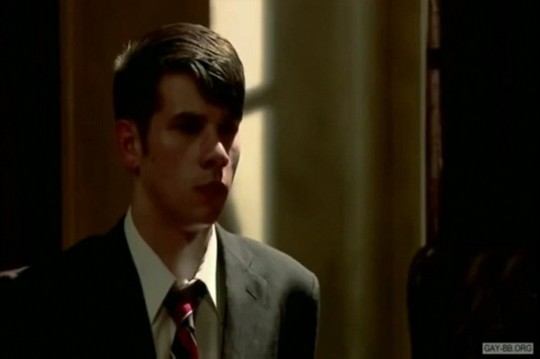
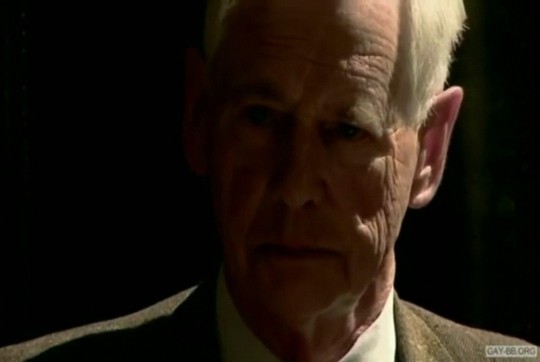





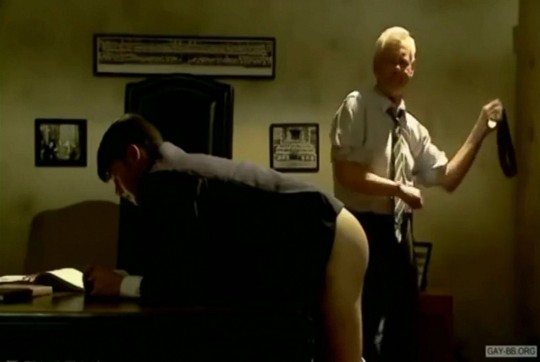
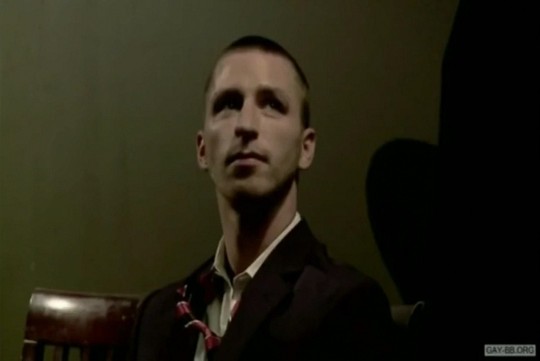
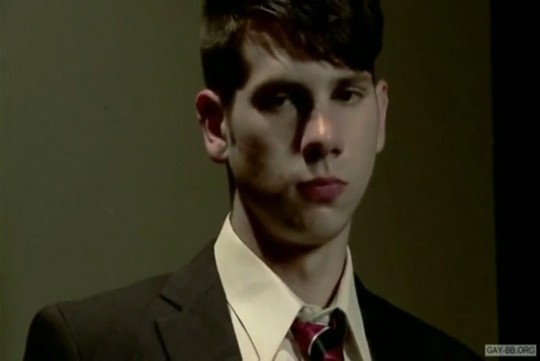
Well, where to start with this… It’s basically a gay soft porn film with delusions of grandeur (it’s even got a mournful score)—but you’re probably well ahead of me and worked that out from the synopsis. The fact that the director is feted as a trend-setter and "the most important adult film director of her era" says it all really, although all the hyperbole is undermined somewhat when you find out she works for Lust Cinema.
Obviously, the main thrust (ho, ho) of the movie isn’t the corporal punishment, but that’s what we’re here for. It’s an American production, so of course they get British schools totally wrong (I’m not sure what Sting Pictures’ excuse is lol).
In this scene Robert finds out he’s going to get a flogging (sic) and a suspension, and must take off his own belt and give it the Head, who surprisingly doesn’t seem to have any suitable implements of his own tucked away. Robert is told to drop his trousers and bend over the desk to be belted, at which point the Head removes his jacket, loosens his tie and rolls up his sleeves to show us He Means Business. I was caned and slippered at school and none of my teachers felt the need to turn into Bruce Willis, so I kind of feel like I missed out. Anyway, he’s belted for real eight times (does that count as a flogging?) and then off he goes to meet mum’s fiancée, who I’m certain will turn out to be a top bloke (sorry).
Not much is known about youthful lead Chase Austin other than he’s clearly over 18. This was his first big break, and he went on to feature in such cinematic masterpieces as He’s Tempted by Cock and For Your Eyes Only (no, not that one). The Head should probably be on a list somewhere and Ian Whitcomb, who plays him, delivers his lines like he’s recovering from a stroke. Meanwhile, whilst Chase looks young enough to play a convincing schoolboy, Travis Irons, who plays his young lover at school, is anything but. I’m reminded of that bloke Brian McKinney who sneaked back into his old high school in his 30s to resit his exams.
Here’s the clip for your eyes only (sorry, Chase):
13 notes
·
View notes
Text
This new wave of Queer cinema worries me a bit.
I'm talking things like Saltburn, Fellow Passengers and All of Us Strangers.
It worries me because, while beautiful to look at, it's a beautiful package wrap around one very detrimental idea: gays are not okay.
I'm gonna spoil a bit here. Ignore the list if you haven't seen any of these movies:
Saltburn is the story of Oliver, a guy that at first glance is shown that is experiencing the worst crush of his life on Felix, a beautiful English boy that he just can't have... and thus he starts this strange journey to get him, only to reveal to us that it was never Felix whom he wanted, but the Saltburn state where most of the story happens.
Fellow Passengers shows a beautiful love story of these two men who keep on being lovers through the ages and shows the audience what it means to be gay through a moment in time very difficult, because as they deal with externalized homophobia, they deal with internalized homophobia.
All of Us Strangers, while I haven't watched it, I have read that the basic idea is that Adam (Scott) is a screenwriter who runs into Harry (Mescal) who seems to make him open up and become vulnerable. And then they seem to move back to Adam's house where his parents are still living.
Now, I don't want to extrapolate over something so silly and superficial. But it worries me that these are the new "wave" of queer cinema. Because underneath it all, the basic conflict is that being gay is somehow linked to these problems of internalized shame and regret. While not explicitly villainizing homosexuality, we don't have the counterpart on the industry. We don't have homosexuals we can look up to and when we do, they are wrapped in the police and government propaganda idyllic world that serves the powers to be. (yes, I'm talking about you, Tarlos).
And yes, that's true. We gay men go through shame and regret more punctually than straight men do: because the world was not constructed for us so we have to learn to navigate the fact that we "look" the part but we "aren't" the part. We become performatic and we fill the gap between ourselves and the very large mask we use with shame.
But straight men have something we don't: an array of power fantasies at the tip of their fingers where their sexuality is not even questioned, put into consideration or a source of shame. Some other factors may be questioned, but never their sexuality. Rebel Moon comes out in December 21st and it's a testosterone-filled action movie with male actors and male characters that have not their sexuality questioned in this imaginary universe. Aquaman 2 comes out around the same time and it also features straight masculine acting men who do not have to worry about one ounce on how gay they look.
And that's the problem.
Every gay media I watch that gets to the mainstream is "woe is me and I'm gay". Even stuff that's supposed to make you feel good (Heartstopper or Smiley) has that component of internalized shame. And I get it, many of us who have come now into economic power and who are main consumers lived a time where shame was the norm.
But it's time to stop that. And also, is time to stop telling the gays that come behind us that they have to suffer this.
It's been more than 20 years since I fist watched Queer As Folk (the British version with a twink Charlie Hunnam) and we are still dealing with the same tropes, the same stories, the same ideas.
Where are the hyper-masculine gay super heroes? Or even better yet: the fat and femme gay super heroes?
The romantic and endearing fantasy princes looking for their own prince?
The fantasy hero based on the monomyth who faces his father as a representation of the Patriarchy that has stomped on him?
Where are they?
I'm just... tired.
Tired that in 20 something years we still have the same shit and we don't seem to move beyond Queer as Folk and Brokeback Mountain type of stories. And when we do present something new they are bogged down and ignored in the corporate shitty streaming world that only cares about how much money it can pull out from our pockets. Like that supernatural show (Astrid and Lily Save the World) with two plus size lesbian main characters.
I mean, it's amazing to see Andrew Scott get it going with Paul Mescal, and to see Jonathan Bailey suck Matt Bomer's toes is a first... but I need something more. Something different. Something were the character's sexuality isn't questioned or a source of shame, but a worthy, proud, and unapologetic trait of the main character who also has fun in the movie.
I want joyful gay stories that celebrate my sexuality. I want simple gay stories. I want happy gays.
Isn't that what the term is supposed to mean in the first place?
5 notes
·
View notes
Note
where's the harry's house unhinged ranking maam
alright this is longer than the other two combined but it's not my fault he is a madman. here we go
Matilda: was this necessary. was this necessary. Hey quick question was this necessary. I think we all know why this is number one and it's especially sickening that this ONE SINGULAR TIME in his career he chose not to be even a little vague in his lyrics, not one word minced. like did he really need to say "your family never showed you love" with his chest like that :/. second of all, writing a song about found family and DIY-ing clothes and growing up isolated and naming it after Matilda knowing his whole fanbase is made up of sentimental homosexuals and repressed eldest sisters WAS targetted behaviour. in second person too. he really said "YOU are gay and alone.. but it is okay ❤️".
Keep Driving: the already infamous choking/cocaine line, the science, the edibles, the bad-driving metaphor etc etc yes, ALL psychotic. but probably the most unhinged unnecessary part is the sickly sweet slap in the face that is "hashbrown, egg yolk, I will always love you" ambushing me with no forewarning. makes me want to jackhammer my head into the nearest wall until my skull is pulverised. why would you put a line like that in a song that is also about sideboob and then have the audacity to tell ME to "just act normal"?? you are preaching from hell.
Music for a Sushi Restaurant: he put his brain in a blender and then served it up. just absolutely saying whatever the fuck, not even trying to make sense, 50 different things going on at all times. like it's him in the studio reading a takeout menu over that Glee Club ba ba-ba acapella harmony, making a british pun about cocaine, hitting dog frequencies with those falsettos, pondering society if we could eat stars, and then proudly declaring he's not going to go broke as if anyone even asked. like okay..... music for a psych ward.
Little Freak: yeah he clearly walked into the studio dick first with this one but pensively somehow. talking about wet dreams but i feel like witnessing a slam poetry reading. philosophical horniness. Little Nietzsche.
Boyfriends: he had a simon and garfunkel beat, gay misandry in his heart, and a dream. doubly psychotic that this was conceived on the same day as the Fuck Straight People anthem that is Lights Up... he said heterosexuality it ain't me 🤣🙏 but you gay people are on thin ice too. (also let's not think too hard about "I'm not ever going back" / "you fool, you're back at it again"...... his mind is a saw trap)
Love of My Life: I do actually subscribe to the idea that this song is about England and not a person bc it makes it so funny. "you were the love of my life, will it ever be the same, I wish I knew you better"... brother it is a country. England unfortunately still exists. where is it going to go. you are so dramatic.
Cinema: never witnessed a more aquarian move than being in an intimate relationship with someone, sleeping in the same bed, going on late night drives, dancing, spending all your time with them and then after all that being like do you like me tho do you think im cool do you think im chill? then he spends the last 1 minute making a sex pun about popcorn.
As It Was: are we institutionalising ourselves or shaking ass like what is the energy here. why does this song about clinical depression make me want to do 15 consecutive cartwheels
Satellite: "am I bothering you do you wanna talk" to "I don't want to talk to you" within 60 seconds. if i said i want to talk then i didnt bc i dont. no i didnt <3
Daydreaming: yeah yeah a song about horny dreams what's new. the most insane part of it though is definitely the bass line like.... that is the bass line written by a man taken HOSTAGE. a man FIGHTING for his LIFE. convinced kid harpoon was in that studio with a gun to Harry's head, finger on the trigger and all. Like everytime I listen to this song I imagine him getting waterboarded because there's no other explanation.
Daylight: the insanity of sandwiching a song about riding bikes and sitting on roofs and finding life and bluebirds and honey between one about crippling loneliness and one about dangling wet dreams. be serious for once in your life harry.
Late Night Talking: funky little anthem but what do you mean "late night talking"? we all know ur geriatric ass is all tucked in by 9PM on the dot, Scrooge nightcap on and all. stayed up til 9:30 and wrote a whole song about it.
Grapejuice: mostly just toothache-inducingly sweet but sidenote: i truly despise being provided insight into his food/wine taste bc its always horrific and caucasian. genuinely enjoying red wine..? please stop. imagine you go over to this man's house and he's serving pile of boiled peas with some nasty ass shiraz to wash it down lord have mercy
(and hs1 and fine line ranked for ur displeasure)
115 notes
·
View notes
Text
I watched this movie Blue Jean last night. It’s an independent movie about a lesbian gym teacher, and some other lesbians, living in Newcastle under Thatcher’s Section 28 (link because I hadn’t known about that specific law, not being versed on every bit of British history from the 80s and 90s beyond “Thatcher very very bad, miners on strike”, though I know Canada’s had similar legislation). I realize that plot sounds like something someone would make up if they were trying to describe the stereotype of a hypothetical indie movie. I really, really liked it anyway. Or maybe I shouldn’t say “anyway”, as though I liked it in spite of it being a stereotypical indie movie. What’s wrong with being that?
I’m the sort of person who should be really into indie movies, given everything else about me. My dad and I share an interest in Canadian folk music and British comedy, and he’s also really into independent movies, and by rights I should share that one with him too. But I’m just not that into movies generally. If everything that happens is on the surface, two hours isn’t long enough for me to get hugely invested the way I do with a book or TV show, and if there’s enough subtle artsy stuff going on to imbue it with extra meaning, I tend to not know enough about how that works to catch most of it.
There are exceptions. I think my favourite movie might be The History Boys, for which I try to find a lot explanations for why it’s not really equating homosexuality to adult male teachers who touch up male children. Obviously that would not be the message from Alan Bennett and the real message is about what homophobic repression does to people, but also, sometimes it’s hard to justify when the surface message very much is “homosexuality means adult male teachers who touch up male students”.
Anyway. Blue Jean. It is not The History Boys; it has a gay teacher but she very specifically does not touch up any of the students. It is really, really good. I can’t remember the last time I enjoyed a movie that much. I don’t know enough about cinema to explain this, but I’m pretty sure the acting was very good. And the directing or editing or whatever leads to all the shots that convey a hundred things in eight seconds with no dialogue.
All right, this got long, so after finishing this post I’ve come back up her to add a “keep reading” link. It also takes a turn for the increasingly personal after this point that I didn’t really plan, so... fair warning on that. Also, honestly, this post was kind of hard to write, so I’m not going to edit it, sorry that it’s full of errors. I feel better for having written it, though.
The intensity with which they make you feel everything that happened is amazing. Or that was my experience, at least, and I usually come out of movies where people say that’s what’ll happen and think I don’t get it. I got this one though. They did something right. My attention span did not even begin to waver for the 95-ish minutes.
It was an interesting way to learn some history, a bit of what it was like to be gay in Thatcher’s England, specifically in a school setting in Thatcher’s Northern England. And harrowing how little some of it changed for a couple of decades, which I hesitate to say because I’m incredibly lucky to have no idea what it was like to be gay anywhere in the 80s. But also, fucking hell, they took a few little shots to make the horrors of being gay in a high school gym class change room radiate off the screen. That, at least, was not that different in Canada in 2005 from this blue-hued indie movie in Thatcher’s England. You feel that terror just from a few seconds of watching the movie. And you say, “Ah, this is how movies are supposed to work, getting you that invested despite not having that much runtime.” Again, by “you”, I mean “me”.
It did really starkly remind me how much that was the scariest part for me, as a teenager. It took me a couple of years to go from “okay, as long as I never tell anyone this and never write it down or say it out loud, it’ll be okay and doesn’t have to ruin my life” (age 15) to “yeah I’m pretty much out, I’ve told most people I know well and I no longer swear people to secrecy when I tell them… except telling them not to tell girls on the team, obviously” (age 17). It wasn’t until several years after that that I stopped worrying about girls from sports knowing, that one was terrifying for so much longer than everything else. Being in change rooms with them and doing contact sports with them was scary enough just when I thought they might know, and sometimes, those fears weren’t unfounded. Sometimes, they did say shitty things in change rooms, because teenage girls can tell there’s something off, whether you tell them or not.
This of course makes me think of rhetoric around trans people now. I hate saying “what people said about gay people in the past is what they say about trans people now”, because it ignores the fact that they still say those things about gay people, and they said those things about trans people back then too. Also, it’s not separate, it’s a general sense of anyone who seems like they don’t “belong” in the safe space of the change room being targeted. Trans people who have the wrong bodies, gay girls who will look at the straight girls the wrong way – all unsafe, predators just by being there.
But these days, there is a lot of specific mainstream rhetoric around trans people just existing in change rooms being a threat to girls and kids generally. And somehow, that rhetoric manages to pretend that cis gay people are the victims of those trans people, rather than being the victims of that same rhetoric that thinks the wrong people being in a change room is an automatic threat. Change rooms are supposed to be a safe space for girls to not have gross people looking at them sexually, and any gay or trans person has always been seen as a threat to that (even though, I hope it goes without saying, gay and trans people are overwhelmingly likely to be the ones carefully staring at the change room wall in fear of being accused of seeing anything they shouldn’t see, they’re not looking at anyone sexually in there), which is how people end up calling someone an abuser or a predator just for being trans near a child.
I read something just recently about how trans women ruin change rooms’ status as safe spaces for teenage girls, and all I could think was how they did not feel safe for me as a teenager. I don’t need to get into all my high school gym class experiences, but the change room was definitely not a safe space free from fear or harassment for me. I’d probably have felt safer if I’d had some trans people in there, feeling like I wasn’t the only one ruining their otherwise perfect environment.
Anyway. Despite all the flashback-inducing shots of high school gym class from a gay girl’s perspective, that wasn’t what brought back the most memories. That would be the main character, a gym teacher who makes every move carefully, watches every step, for fear that she’ll be found out and accused of being a predator just for being a lesbian in the presence of teenage girls. Fucking hell, that was well done in that movie. I’m pretty sure that main actor was very good. I don’t know enough about acting to say, but I’m pretty sure good acting was involved in why that hit so hard.
That brought back fun memories of the time I was 22 and had a fifteen-year-old girl come to me for help because she was suicidal and in an abusive home, but beg me to not tell anyone, and I got to navigate the line of “break the trust of a teenage girl who came to me in confidence, who’s already had every adult in her life violate her trust and she told me this left her unable to talk to anyone but I’d been so kind to her and she was so scared that she took a chance on telling me”, or “not tell anyone what she told me and possibly have a teenage girl kill herself because I didn’t do enough to prevent it.” While also knowing that just about anyone I could report it to would tell her parents, and I had good reason to believe that would only make the situation worse. I remember her sending me a text that said “I Googled what to do if I want to kill myself and it said to tell an adult”, and I almost wrote back to say “Yeah holy fuck go fucking do that”, until I realized she was doing that. Again, I was 22.
Long story that spans the next year of me making lists for her of confidential hotlines and sources of therapy and professional crisis support, and making anonymous calls to her school board to find out how much she could open up to them about without her parents getting told so I could encourage her to talk to a guidance counselor, making her promise to call me if she needed me, making sure my phone was always charged and always had the volume up loud enough to wake me up if it rang in the middle of the night, missing social events and sometimes my university classes to take her calls every time, having nightmares about her dying and it being my fault.
Her mother never knew most of what was happening, but at some point she found out I was gay and coaching her daughter, and then decided that the small amount she did know of her daughter’s mental health problems were my fault. That I was a predator grooming her daughter and trying to make her like me. She threatened all kinds of things, and then I had a new thing to be terrified of. Either I’d respect the mother’s demands that I stay away from her daughter and then a girl might die if she was cut off from support, or I tried to keep in touch anyway, get accused of horrible things, and my life is ruined. Coaching was my life, I knew I wanted to pursue a career working with youth, all that would be gone.
Stayed in this difficult position for about six months, still taking the girl’s calls but terrified of her mother. I started having people I knew come to me to tell me this mother had cornered them to tell them that I was a danger to teenage girls and they needed to know there was a gay predator in their midst. God knows how many people she said that to who didn’t come tell me about it.
At the national championships, my friends told me they saw this mother yelling at her daughter outside, at first they wouldn’t tell me what she’d said beyond the fact that it was really bad, but eventually I got them to tell me one direct quote, which was: “If that fucking dyke ever comes near you again, I’m calling the fucking cops.” Weirdly, my first question was who else was around to hear that – I guess because I already knew the mother hated me and the daughter knew it, but if my friends who already knew the story overheard it, then some people in our community who didn’t know the story but did know me might have heard. They said our university coach was standing nearby and they were pretty sure he heard.
I had this confirmed a couple of years later, when that university coach got worried that I was trying to recruit one of my former athletes back from him (which I fucking wasn’t, he drove that guy away all on his own, but that’s another issue), and he told that athlete not to trust me because I have an history of being sexually predatory toward my athletes. I was devastated when I heard that, because that guy was my coach for two years. My high school coach was horrible (again, different story), but my university coach seemed like a nice guy when I was there, helped me through some difficult stuff, gave me good advice, I looked up to him and trusted him. And he knew me, I was shocked that he’d believe something like that about me just from overhearing a few things shouted by a woman he didn’t know. Honestly, he probably didn’t believe it, he was just using it to play politics. Playing politics with something that absolutely traumatized me – I mean, you’d think that some things would be off limits even in the cutthroat world of recruiting one fucking kid for your varsity team. Though he may not have known how bad it was for me. I wouldn’t know what he thought, I haven’t been on speaking terms with him since this happened like eight years ago. I did watch him yell pointlessly at an athletic director in a coaches’ meeting at a tournament two months ago, though, and wonder why I ever gave a shit what he thought of me.
It didn’t work, either. The athlete he was trying to turn against me did know me, and he knew the story of why that mother had spread those rumours about me. He didn’t tell me what the coach had said, though. He told a mutual friend of ours, and made her promise not to repeat it to me. She got drunk and told me about a year later. Desperately hoping she’d somehow gotten the story wrong, the next time I saw that athlete, I asked him, “Last year, when [coach] was trying to turn you against me, did he say anything that you’ve never told me?” And he said, “Are you sure you really want to know?” And I said, “I think you’ve just told me.” And he said, “Did she get drunk and tell you?” And I said, “Yep.”
And he said, “I’m sorry, I only tried to keep it from you because you’d already been through so much and I didn’t think you deserved to hear something so awful. You know I’d never believe a word from that homophobic asshole, right?” And then he gave me a hug and told me I’d been like a mother to him. And for the record, that guy is Muslim, and everyone in this story who treated me like shit is white. I’m only mentioning that part to say that people who think Muslims are the big threat to gay people can fuck off right alongside the people who think trans people are the big threat to gay people (yes, Islam and all religions can be a threat to gay people, but Islam is mainly a threat to gay Muslims, so hating all Muslims is not a great solution).
Anyway. Writing all this is making me want to say “trigger warning” about that Blue Jean movie, because it turns out if you watch it and you were once accused of being a predator for being a gay woman who works with teenage girls, it might drag up some traumatizing memories. But that doesn’t mean people shouldn’t watch it, it just means, you know, maybe save it for a time when you can handle that. I meant for this post to be mainly about the movie, and did not realize how much I needed to write all this out until I started doing it. That movie did bring up some stuff.
In case anyone was wondering, the girl survived. She finished high school and moved several hours away from her mother, and we’re still in touch sometimes. She’s just started a PhD. She came out as gay a couple of years after high school, and I had a small breakdown, terrified that her mother had been right all along, I had, in fact, been somehow grooming her and turning her gay (please note that I did have the sense to not express this to the girl in question). One I had a horrible panic attack about it and expressed this fear to someone at a mental health hotline, a number I still had in my phone from when I’d first sent it to this girl when she was fifteen. The person on the phone pointed out that if there’s any way in which it’s not a coincidence that she came to me for help and turned out to be gay like me, it’s because she sensed that I she could trust me because I was like her, even if she didn’t know why yet. Which I think may be true. I saw her in person a few months ago, when I went to a tournament in the city where she’s living now. She told me she’s now several years older than I was when she first came to me for help, and she now realizes how young I was and how hard it must have been for me, but she appreciates everything I did for her. She did not say I made her gay.
After I finished watching the movie Blue Jean last night, I watched the new Hannah Gadsby special, Something Special. It’s lighter than he last two shows, about how she fell in love with, and then married, her now-wife. “Show that’s all about how I got into my relationship” is usually not a type of comedy show I love, but that one was pretty perfect for last night. Watching Blue Jean made me really enjoy seeing a lesbian who grew up in the 80s and 90s tell us her love story with the woman she married. Because as much as I’ve been through some shit, I have no fucking idea what it was like to be gay under Thatcher, or under those similar laws in Canada at the time, or anywhere in the 80s and 90s, or in a place that’s liberal than urban Canada now. I’m very lucky to not know that, and I felt genuinely inspired by seeing a woman who has been through that tell a positive story. I don’t even want to analyze its merits as a comedy show or anything (good though, it was good), it was just perfect for last night.
Watching those two things in a row last night was pretty cool. If anyone wants a night of watching cool lesbian things, may I recommend the movie Blue Jean followed by the Hannah Gadsby show Something Special? Made for a very gay night – the gayest night I’ve had since I broke up with my girlfriend last year. Anyway. I’m doing fine. I’m going to go back to listening to The Bugle now. With Andy Zaltzman, who was making jokes about the absurdity of anti-gay marriage arguments in 2007, and that wasn’t exactly a revolutionary stance for a leftie alternative comedian to take even back then (I’m still not clear on exactly what an “alternative comedian” is, but whatever definition you use, Andy Zaltzman is it), but still, it wasn’t the mainstream view at the time. Also, Andy Zaltzman has an agender sister (I believe the specific identity is “unsubscribed from gender”, and I’m pretty sure Helen Zaltzman is still cool with the word “sister”, correct me if I’m wrong) whom he fully supports, and the only time I’ve heard him make a joke about trans people is when Boris Johnson said “We’ve sacrificed to keep Britain safe” during the pandemic, and Andy pointed out that it is “overwhelmingly a good thing” that people can use any pronouns they want these day, the only time when anyone should be stopped from using any pronoun is in that one instance, Boris Johnson doesn’t get to say “we” there.
3 notes
·
View notes
Text
Updated list of books I'm hunting:
Several folks have asked what specific texts I'm looking for, so here's an updated list! I've found places to purchase all of them, but I'd like to avoid spending money if possible, so I'm specifically looking for libraries or free downloads.
The Lavender Screen: The Gay and Lesbian Films: Their Stars, Directors, Characters, and Critics, by Boze Hadleigh
Out Takes: Essays on Queer Theory and Film, by Ellis Hanson
Flaming Classics: Queering the Film Canon, by Alexander Doty
Out in Culture: Gay, Lesbian and Queer Essays on Popular Culture, edited by Corey K Creekmur and Alexander Doty
British Queer Cinema, edited by Professor Robin Griffiths
Screening the Sexes: Homosexuality in the Movies, by Parker Tyler
Gays and Film, by Richard Dyer
Now You See It, by Richard Dyer
19 notes
·
View notes
Text
Groovy Bob covers
Groovy Bob: The Life and Times of Robert Fraser, by Harriet Vyner
In this new biography, the first to have the complete co-operation of Fraser's family and friends, Harriet Vyner has not only recreated an extraordinary figure but an exciting and colourful era - sixties London. Told through the voices of those who knew Fraser best - Paul McCartney, Mick Jagger, Keith Richards, Marianne Faithfull, Jim Dine, Kenneth Anger, Dennis Hopper and Vyner herself - Groovy Bob is both a biography and a portrait of the most exhilarating period in post-war British social history.
Fraser brought together many of the elements that made up Swinging London: pop music, fashion, drugs, art and cinema. Yet he was himself a curious representative of this culture. He was an Eton-educated, former Kings African Rifles officer, the son of a highly successful banker, who bridged two very different worlds. He had, Jagger said, an aura; he was a tastemaker, a hedonist, a lousy businessman whose artists adored him, a promiscuous homosexual who avoided the gay scene. By the time of his death from AIDS in 1986 he had become an almost forgotten figure, his vision no longer in tune with the conservatism of the eighties from which the sixties was a brief departure.
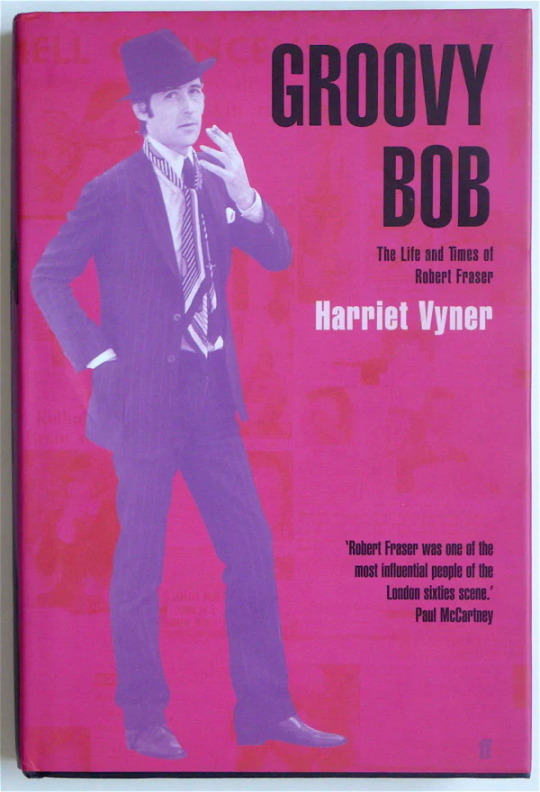
Original hardcover, Faber & Faber, 2001

Faber & Faber edition, 2002, paperback
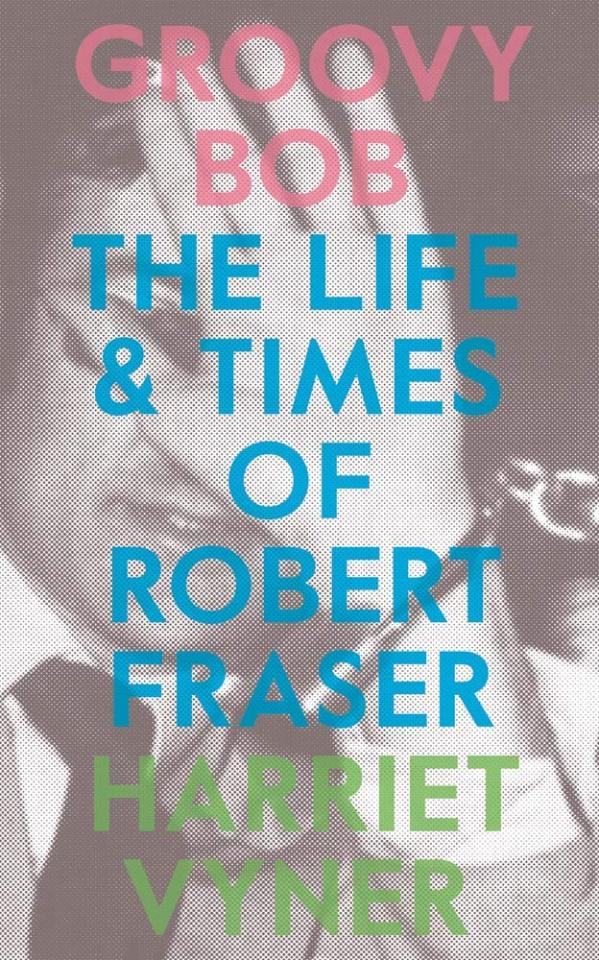
Heni Publishing, paperback, 2017. This edition features a new afterword by the author and colour plates including works from the major exhibition A Strong Sweet Smell of Incense: A Portrait of Robert Fraser, curated by Vyner and Brian Clarke at Pace London, 2015.
5 notes
·
View notes
Text
Character Intro: Naeus (Kingdom of Ichor)
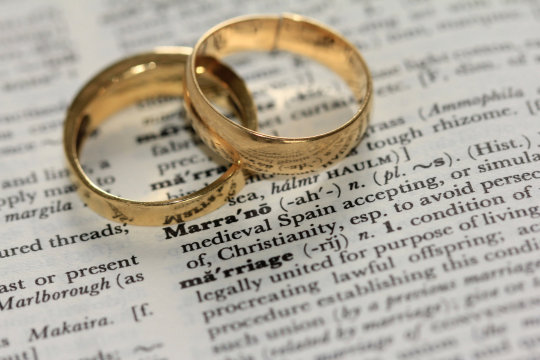
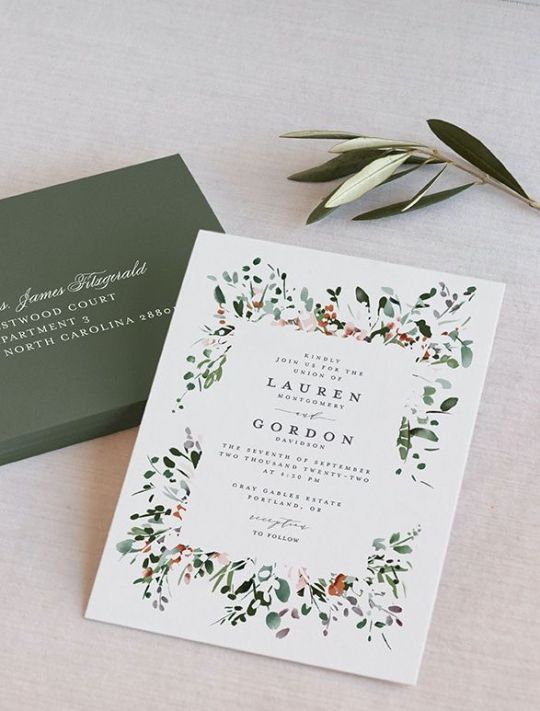
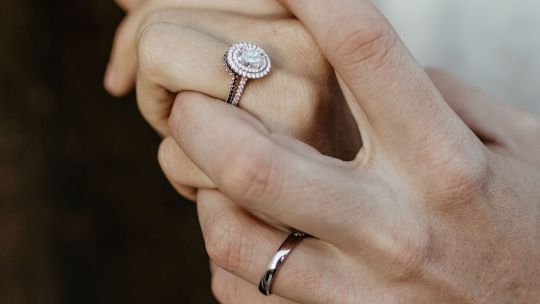


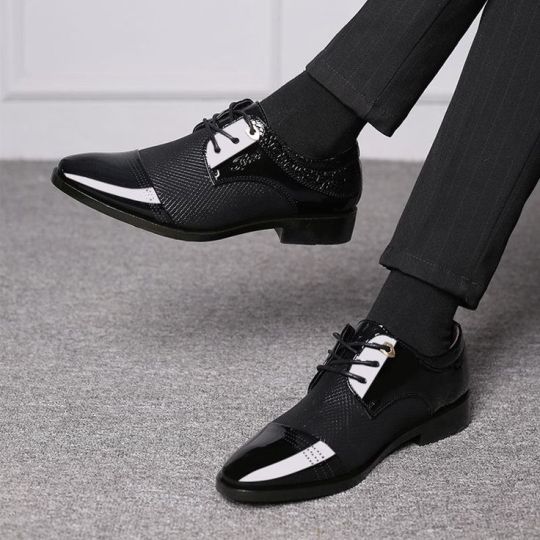

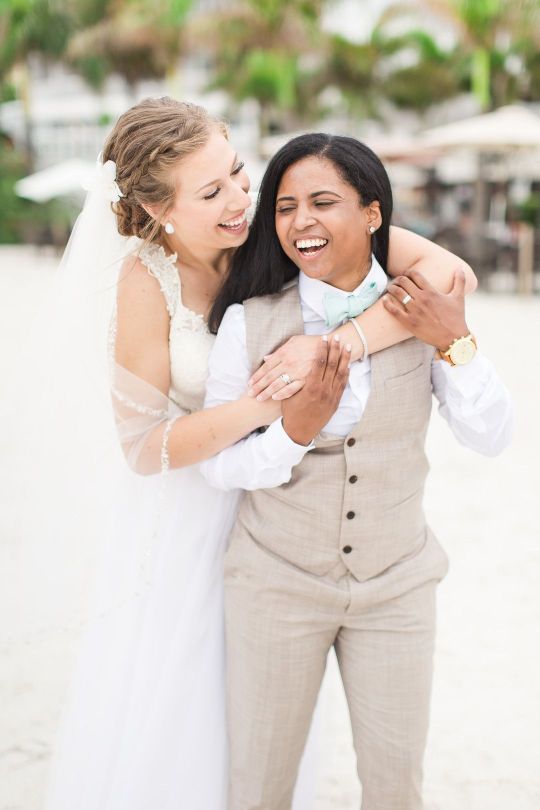
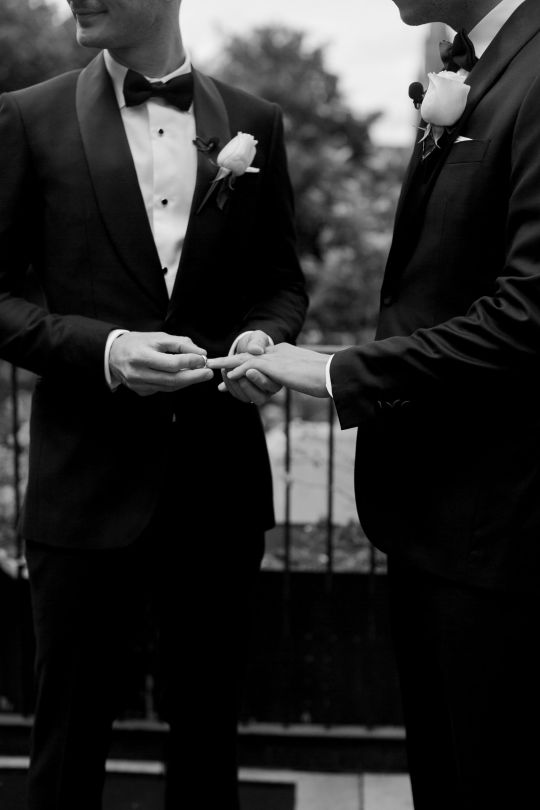
Naeus by Hera & the others in the pantheon
Age- 20 (immortal)
Location- Queenstown district, New Olympus
Personality- He's a quiet sensitive guy & a through-and-through romantic. He's introverted at times, a bit serious, and a meticulous planner. He's currently single.
He has the standard abilities of any god. Being the god of marriage & bridal hymns, Hymenaeus' abilities include having limited amokinesis (as it pertains to romantic love during a wedding) and matrimony precognition- sensing the compatibility of any couple. He also has the innate sense of the marital status of any couple. He also has the ability of flight (due to his light gray-blue wings).
Naeus lives in a townhouse in the Queenstown district of New Olympus in roughly the same neighborhood as Hera and Eos. He's a huge cat lover & has many pets- a persian cat, a british shorthair, two siamese, and a ragamuffin- a girl named Hera jr.
He works very closely with Hera as they both preside over marriage. He has his own business- a wedding planning company as well as sharing work with Hera- designing tuxedos & wedding bands for her Luxuria bridal collection. Naeus also serves as an officiant. He doesn't mind doing it sometimes. For other work, he's a contributing writer for Modern Olympus and Regalia.
His go-to drink is a chocolate milkshake. He makes it, mixing in pieces of chocolate cake & shortbread cookies. He also likes a classic martini, ginger ale, cola, & a scotch on the rocks. His usual from The Roasted Bean is a large chai latte.
His favorite dessert is the chocolate ganache cake. Naeus gets it from Cocoa Delights.
He often refers to himself as a "serial monogamist", even though he hasn't been in a serious romantic relationship in a long time. Naeus used to say that he was always too busy for a girlfriend, but he knows the real reason- his feelings for Hera (goddess of women & marriage). He has always cared more about her than he likes owning up to. Naeus hasn't said anything, his main fear of losing their friendship being too great. He's been a support system to her/shoulder to cry on every time she came to him with news of her husband's infidelity or her worries about Hephaestus (god of the forge).
In the pantheon, he's good friends with Iris (goddess of the rainbow), Hestia (goddess of the hearth); loves her crumbly coffee cake, Dionysus (god of wine), Aphrodite (goddess of love & beauty), Deipneus (god of cooking & breadmaking), Epiphron (god of prudence), Pothos (god of longing & yearning), Aeolus (god of wind), Philyra (goddess of perfume, paper, & beauty), Himeros (god of impetuous love), Ganymede (god of homosexual love & desire), Chione (goddess of snow), Eurus (god of the east wind), Paregoros (Rae) (goddess of soothing words), Peitho (goddess of persuasion & sensuality), Ditus (Hermaphroditus) (god of bisexuality, effeminacy, & fertility), and The Muses. Naeus is also quite close with some of Hera's kids like Ella (Eileithyia) (goddess of childbirth) & Hebe (goddess of youth). He's also good friends with the singer Eurydice.
He's honest about the fact that he looks down upon "open relationships/marriages" and those who glamorize it, like Philotes (goddess of sex, friendship, & affection) and Priapus (god of fertility, vegetable gardens, livestock, sexuality, & masculinity).
Naeus' favorite food are crab rangoons. He also really likes Hera's samosas. He also likes fried brown rice with chicken & broccoli.
In his free time, he likes being a huge homebody- staying at home with his cats, reading, poker, billiards, watching a football (soccer) or baseball game on TV, transcribing music, playing the piano, working on his own music. If he's not at a wedding or an engagement party, he also likes spending time with Hera- going out to eat, visiting museums and the cinema (he doesn't mind sitting through rom-coms & romantic dramas).
"There's always someone's better half, be it romantic or platonic."
#my oc#my oc character#my character#oc character#oc intro#character intro#oc introduction#character introduction#modern greek gods#modern greek mythology#greek myth retellings#greek gods#greek mythology#greek pantheon
3 notes
·
View notes
Text

𝒊𝒏𝒕𝒓𝒐𝒅𝒖𝒄𝒊𝒏𝒈 𝑱𝑨𝑺𝑷𝑬𝑹 𝑷𝑬𝑳𝑳𝑬𝑻𝑰𝑬𝑹 –––––
⧼ 𝐁𝐈𝐎𝐆𝐑𝐀𝐏𝐇𝐘 ⧽ ⧼ 𝐏𝐈𝐍𝐓𝐄𝐑𝐄𝐒𝐓 ⧽ ⧼ 𝐂𝐎𝐍𝐍𝐄𝐂𝐓𝐈𝐎𝐍𝐒 ⧽
hlo besties i’m nev (she/her, cst) and i’m bringin u one of my oldest muses i haven’t played in forever who is a little chaos gremlin!! im gna be at work when i post this but smash a like if u wna plot and i’ll come hit u up (feel free to msg me on disco too 😔✊). below u can find some basic stats for jas and above u can find links to other stuff including a lil connections page so lmk if anything speaks to u :)
BASIC STATS.
Full Name: Jasper Michel Pelletier
Nickname(s): Jas
Gender: Cis man
Pronouns: He/him
Age: 27
Birthday: 13 June 1995
Zodiac: Gemini sun, sagittarius moon, aries rising (mars in scorpio, mercury in cancer)
Ethnicity: White (Northwestern European, Ashkenazi Jewish)
Nationality: American
Sexual Orientation: Homosexual/homoromantic
Religion: Agnostic
Hometown: New Haven, Connecticut
Current Residence: Gastown, Vancouver, BC
Occupation: Part-time waiter at Roxy Burger & freelance artist
Time in Vancouver: Five years including school, lived here three
Education: BFA from the University of British Columbia
Languages: English, Danish
PHYSICAL.
Hair Color: Brown
Eye Color: Blue
Height: 5′8
Tattoos: An infinity symbol on the inside of his left wrist; “dance yrself clean” on his upper right rib cage in small, looping cursive; and a line drawing of the alien emoji about 4x4in on the back of his right arm above the elbow
Piercings: A hoop in his left nostril, both lobes (still slightly stretched from gauges in high school and early 20s), a tongue webbing bar
Scars: (many tba)
Fashion: Oversized graphic tees and sweaters, jeans, boots, converse, etc
FAMILY.
Mother: Freja Pelletier, née Salomonsen (54); Published poet, leads local workshops
Father: Stanley Pelletier (62); Philosophy professor at Yale
Siblings: None
Pet(s): A ferret named Sponge
PERSONALITY.
Outlook: Optimistic
Pos. Traits: Artistic, quick-witted, energetic, perceptive, intelligent, open-minded, brave, forgiving
Neg. Traits: Reckless, mercurial, childish, sarcastic, unorganized, pretentious, indecisive, self-indulgent, flaky
Likes: Fresh fruit, candy, bubble gum, weed, warm summer nights, swimming, boxed wine, rollercoasters, experimental cinema, milkshakes, Lord of the Rings, sitting on surfaces that aren’t meant to be sat on, quesadillas, Twilight, poetry, sex, playing devil’s advocate
Dislikes: Sports, ice cubes in soft drinks, moderation, ranch dressing, organized religion, brand names, being lectured, taking things seriously, Disney, Harry Potter, talking about emotions, steamed vegetables, capitalism, police, politicians
Quirks: Always has pocket change amounting to no more than a dollar or two, weirdly good at guessing amounts of things (e.g. pennies in a jar), weirdly bad at directions, doodles on napkins and receipts, speaks in metaphors, always chewing gum and blowing huge bubbles, can solve a Rubik’s cube, cracks his back and knuckles loudly and in public, uses hot sauce on everything, both afraid of and obsessed with the idea of intimacy
Fears: Never becoming comfortable with being an adult, having no direction in life, disappointing people, being abandoned
HEADCANONS.
Never really “came out” to his parents. He walked into their office one afternoon when he was fifteen and said “I’m going on a date tonight his name is Jeremy 🤨” and his parents looked at him and then at each other and then at him and his mom said “Okay have fun” and his dad said “Be safe” and later that night after he got home he sat with them and told them all about it while they drank tea and his parents told him about both of their first dates
Got bullied a little in school for being openly gay and obviously it was traumatic on some level but he genuinely handled it rly well
Has broken both arms and both legs at some point
Facetimes with his mom and dad at least once a week if not more
His middle name comes from Michel Foucault cause his dad has a crush on him and his mom allowed it
Can play piano because his parents forced him to take lessons and taught himself a little bit of guitar in his early 20s
Has cheated on a large number of past boyfriends and been broken up with every single time and has a little bit of a complex about it gyjhfdkujss
Does calligraphy as a hobby
5 notes
·
View notes
Photo
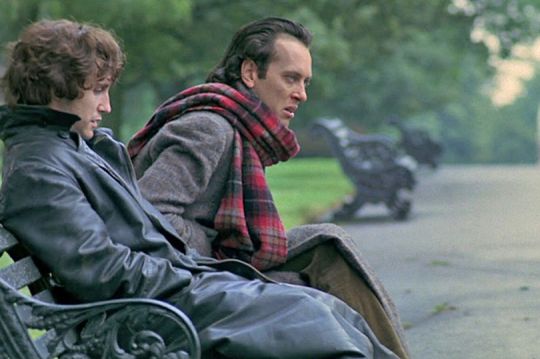
My friend gave me the daunting challenge a while ago of naming my top 10 favourite movies of all time. Withnail and I (1987) came in at #4 on my list.
When I type it up online it comes up as black comedy. I never really saw it that way; it’s one of the funniest films I’ve ever seen and everybody I’ve met who’s seen it says so too. I don’t think it’s dark, in any extreme way. Whenever I need to be cheered up, I watch this film.
Did you know that this was both Richard E Grant and Paul McGann’s debut movie? They are both so good in it.
Do you know the lighter fluid scene – where Withnail is desperate for a drink? Apparently they filled up the can with vinegar, but didn’t tell Grant beforehand: they told him it was water he would be drinking. So the reaction you see in the scene is because he just downed umpteen gulps of vinegar.
Moreover, Richard E Grant is actually allergic to alcohol.
Bruce Robinson (the director) wanted Grant to experience what it was like to be drunk, one night, in order to sensitise him as a form of method acting. So he went out drinking with him and they got through champagne and vodka; Grant later said that he threw up after almost every drink, but just kept going so that he would have a ‘chemical memory’ in order to play the role. And after the binge he slept for 24 hours.
Until I read this just now I always thought they were actually drinking real alcohol during filming. Shows you how good an actor Grant is.
What about the objective aspects of the movie itself …
It’s incredibly authentic, set in the latest stage of the 1960s. There are many accounts (from my brief research tonight) of people/viewers believing that it was actually shot in the 60s. It looks the part.
When it was released in cinemas it was considered a total flop in terms of sales.
Time Out conducted a public-vote best British movies of all time in 2017 and it came in at #15.
It was nearly never made. Due to the producer group involved having doubts about whether it was funny or not. One of the co-producers was George Harrison. And he gave the thumbs up for it to go forward.
The script. It’s just marvellous and very clever. Of course it’s camp and pretentious. But it’s making fun of those elements at the same time. When Withnail and I meet Monty for the first time, he is a ‘raving homosexual’ and he goes on this drunken monologue about how he will “never play the Dane”. Then he starts quoting from Hamlet.
All three men in the room are failed actors. And yet Monty does it so well – he’s quoting to nobody. And Withnail and I find it embarrassing and have to put a stop to it.
Their holiday in the countryside is a total disaster. And yet you laugh the whole way through.
What about the very last scene. Withnail is left alone. He’s getting drenched in rain. Nothing is going in his acting career. And yet he delivers a soliloquy from Hamlet, to himself, to the London park before him. And the zeal of Shakespeare – it’s as good as anything I’ve seen from Richard Burton or Lawrence Olivier or any of them.
It’s a glorious way to end a film. Defiance.
I still think it’s an underrated movie and work of art.
4 notes
·
View notes
Photo
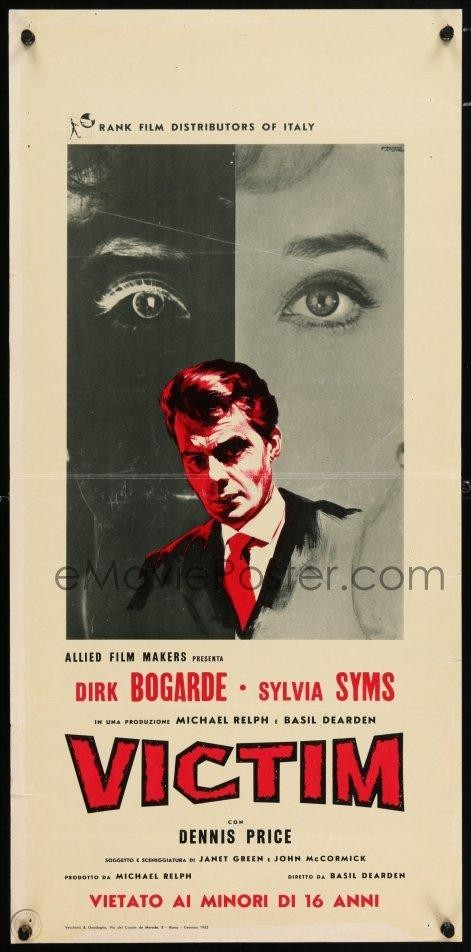
Premiered at the Odeon Cinema in Leicester Square on August 31, 1961 (in the US, the following February), 'Victim', is a British suspense film directed by Basil Dearden, with writers Janet Green and John McCormick, and starring Dirk Bogarde and Sylvia Syms.
Set against a background where homosexual acts between men were illegal in England and Wales until 1967 (under a law commonly known as the 'blackmailer's charter'), the movie was initially highly controversial; Jack Hawkins, James Mason and Stewart Granger, being amongst those who had already turned down the rôle before it was offered to Dirk Bogarde. Despite these initial difficulties, the film is now regarded as a British classic, credited for liberalizing attitudes towards homosexuality in Great Britain at a time when gay men had still needed to keep their identity secret.
In 1960, Dirk Bogarde, himself suspected to be homosexual (something he never publicly confirmed), was 39 and considered pretty much the most popular actor in British films. Speaking in the 1980s about having played the rôle, he said, 'It was the wisest decision I ever made in my cinematic life. It is extraordinary, in this over-permissive age, to believe that this modest film could ever have been considered courageous, daring or dangerous to make. It was, in its time, all three'.
Among his many honours, Dirk Bogarde was created a Knight Bachelor in the United Kingdom in 1992, and awarded the Commandeur de l'Ordre des Arts et des Lettres by the French government in 1990.
He died in his London home on May 8, 1999. His ashes were scattered at his former estate in Grasse, southern France.
8 notes
·
View notes